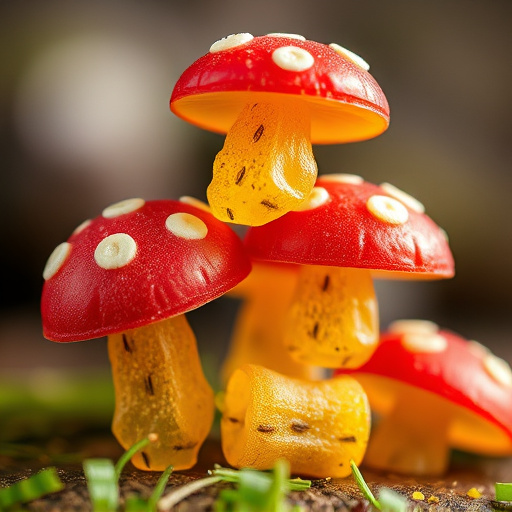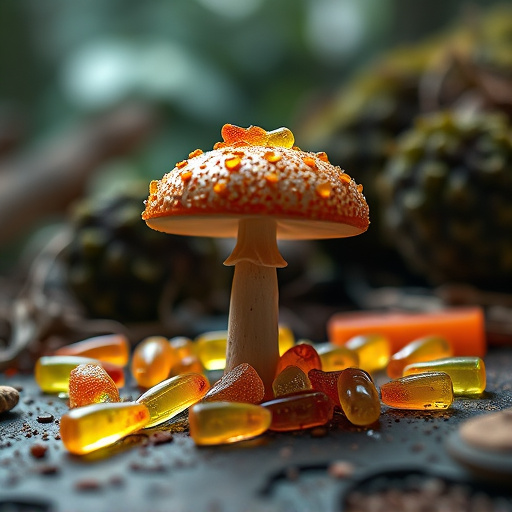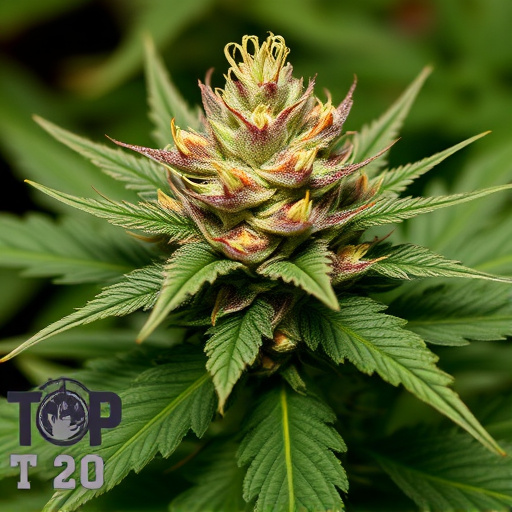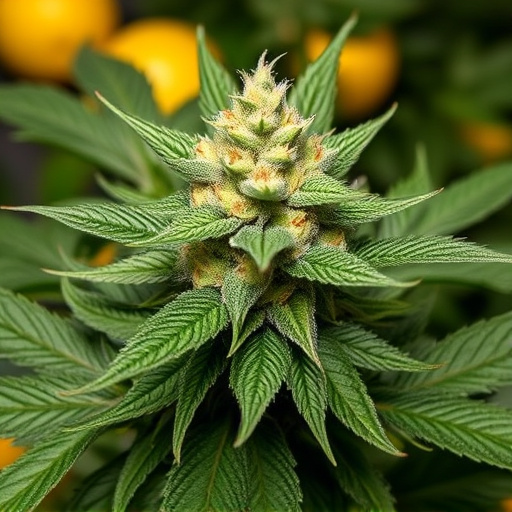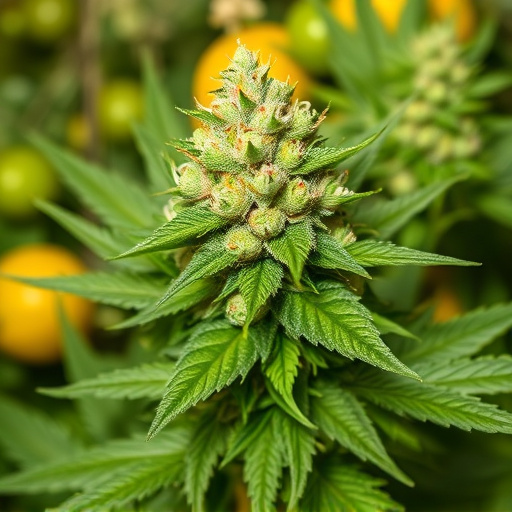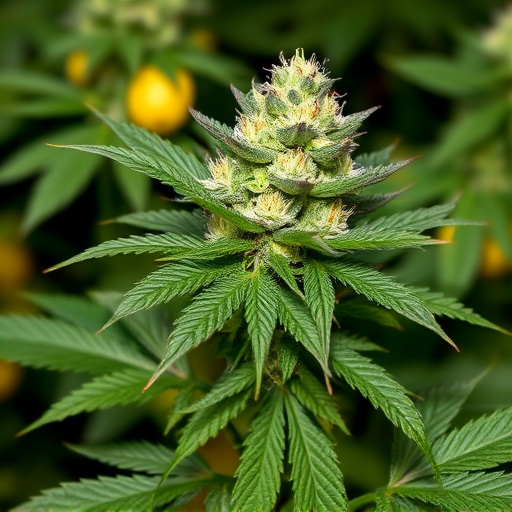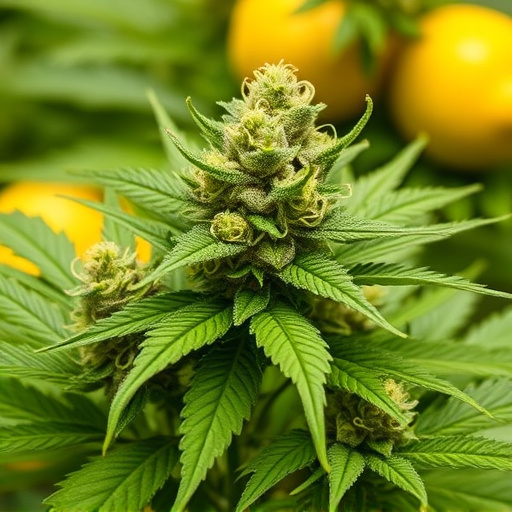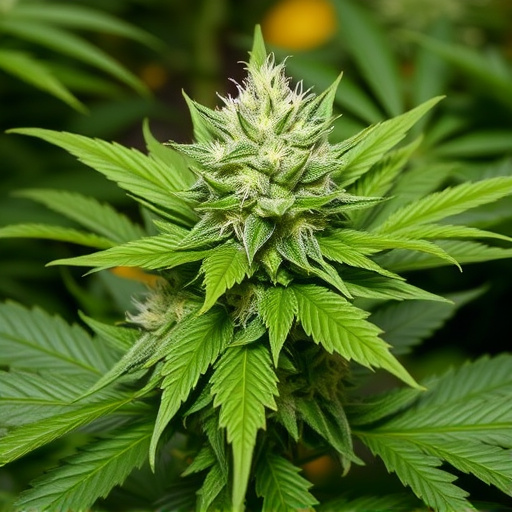Cannabis potency testing is crucial for understanding and marketing lemon cannabis strains, which are known for their citrusy aroma and potential therapeutic benefits. This process involves laboratory analysis to accurately measure key compounds like THC and limonene, ensuring product labels reflect the true nature of these popular strains. Visual cues like dense, sticky buds and olfactory indicators such as a distinct citrus scent aid in identification, while lab testing guarantees potency and authentic experience for both medicinal and recreational users.
Uncover the secrets behind high-potency cannabis with our comprehensive guide. In today’s market, understanding cannabis potency testing is paramount, especially when seeking the renowned therapeutic effects of lemon cannabis strains. This article navigates the process, from recognizing the unique attributes of lemon strains to mastering techniques for accurately assessing flower quality and potency. By the end, you’ll be equipped to make informed choices in the world of cannabis.
- Understanding Cannabis Potency Testing
- Identifying Lemon Cannabis Strains
- Techniques for Assessing Flower Quality and Potency
Understanding Cannabis Potency Testing
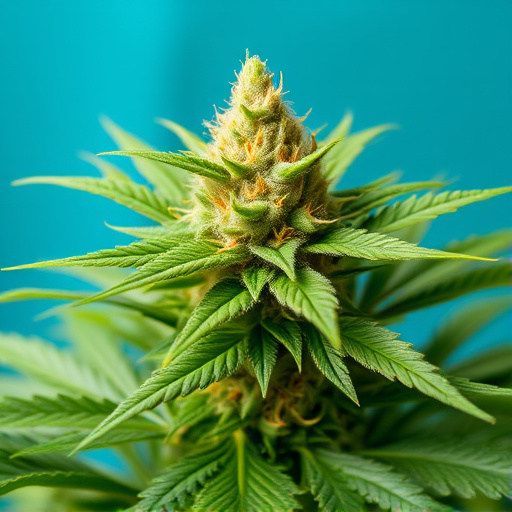
Cannabis potency testing is a crucial process that helps consumers make informed decisions about their choice of strains, especially for those seeking specific effects, like the invigorating and uplifting high associated with lemon cannabis strains. This testing determines the concentration of cannabinoids, most notably tetrahydrocannabinol (THC), in a given flower or product. By understanding potency levels, users can manage their doses effectively and anticipate the desired therapeutic or recreational outcomes.
The process involves sophisticated laboratory equipment to measure cannabinoid content accurately. It’s not as simple as tasting the cannabis, though initial sensory evaluations can provide some insights. Professional testing ensures precise results, enabling growers and dispensers to label products truthfully. For lemon cannabis strains, this means confirming the presence and concentration of limonene, a terpene known for its citrusy aroma and potential therapeutic benefits, ensuring that what’s on the label matches the actual product’s potency and character.
Identifying Lemon Cannabis Strains
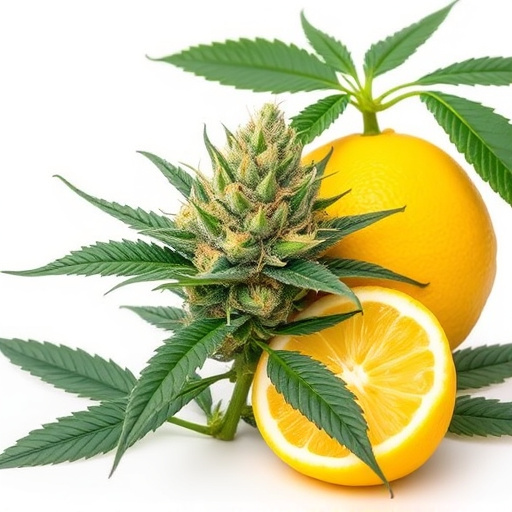
Lemon cannabis strains are a popular choice among enthusiasts for their unique flavor profile and potential therapeutic benefits. Identifying these strains involves more than just smelling a bud; it requires understanding the genetic makeup and cultivation practices that bring forth the distinctive lemon aroma and taste. Growers often employ selective breeding techniques to enhance specific terpenes, such as limonene, which is responsible for the bright citrus notes.
When checking cannabis flowers for potency, lemon strains can offer a pleasant surprise. The lemon essence not only makes them stand out but also may indicate a higher concentration of THC or CBD, depending on the specific variety. This is because terpenes are known to interact with cannabinoids, potentially increasing their effects. Thus, seeking out lemon cannabis strains could lead to a more vibrant and potent experience for consumers looking to unlock the full potential of their medication or recreational use.
Techniques for Assessing Flower Quality and Potency
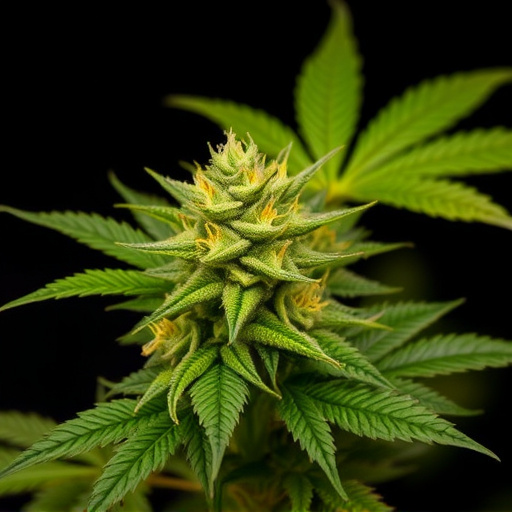
Assessing the quality and potency of cannabis flowers, especially sought-after varieties like lemon cannabis strains, involves several techniques. One common method is to inspect the appearance, smell, and texture of the buds. Lemon strains are known for their vibrant yellow or orange pistils—fine, hair-like structures that capture resin—and a distinct citrusy aroma. When handling these flowers, look for dense, sticky buds with a rich, pungent scent. The texture should be firm and resilient, indicating high resin content, which often corresponds to higher potency.
Additionally, laboratory testing is crucial for accurate measurement of cannabis potency. This process involves sending samples to certified laboratories that use advanced equipment to analyze the concentration of THC (tetrahydrocannabinol), CBD (cannabidiol), and other cannabinoids present in the plant matter. For lemon cannabis strains, this ensures you’re getting the expected levels of limonene, a terpene that contributes to both the flavor and potential therapeutic effects, along with potent cannabinoid profiles.
When assessing the potency of cannabis flowers, particularly sought-after varieties like lemon cannabis strains, understanding testing methods is key. By employing techniques that evaluate both chemical composition and visual cues, you can ensure optimal quality and effectiveness. Remember, whether through lab testing or meticulous examination, the goal is to uncover the unique attributes of each strain, allowing for informed decisions and enhanced consumer experiences. For enthusiasts of lemon cannabis, this knowledge empowers them to select flowers that perfectly balance aroma, flavor, and potency.
